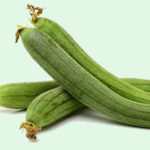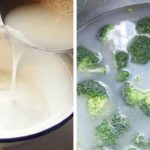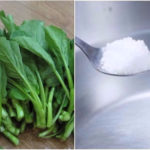Vegetables are essential for a balanced and healthy diet. In addition to fiber, they provide a variety of nutrients, minerals, and antioxidants. However, these nutrients can be reduced or even “disappear” if you wash or cook them incorrectly. Here are 3 common mistakes when washing vegetables that make them dirtier and waste nutrients:
1. Soaking vegetables for too long
If you think that soaking vegetables in saltwater for a longer time will make them cleaner, you are mistaken. In fact, this mistake will make the vegetables dirtier and deplete their nutrients.
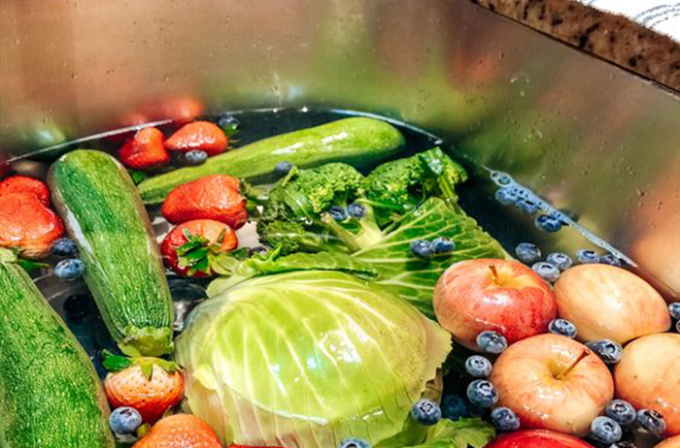
Not only vegetables, but fruits can also lose nutrients when soaked for too long (Illustration)
This is because some vitamins in vegetables can dissolve in water. So when we eat vegetables, we are only consuming fiber without any nutrients. In addition, soaking vegetables in water for a long time can create conditions for bacteria and external preservatives to enter the vegetables, posing a health risk.
Instead of soaking vegetables in water, we should only rinse them under running water, gently scrubbing the parts with mud until they are completely clean. This helps remove dirt and some residual pesticides, as well as prevent nutrient loss.
2. Cutting vegetables before washing
Many people often cut vegetables into small pieces before washing them, either for hygiene or out of habit. However, few people know that vitamins in vegetables start to deteriorate as soon as they are cut, especially when cut too small.
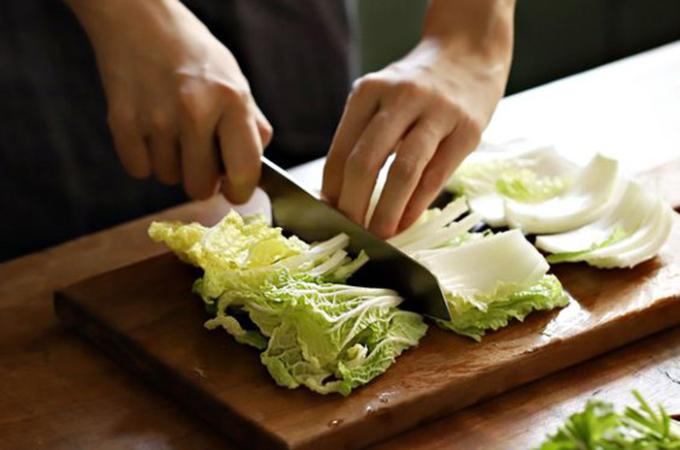
Avoid cutting vegetables, especially cutting them too small or chopping them before washing (Illustration)
With uncut vegetables, the nutrients are protected within the cell walls. If you rinse them directly with water at this stage, the nutrients will not be lost. On the other hand, the process of cutting or chopping vegetables breaks many cells, causing the vitamins to oxidize when exposed to air and oxidase, and dissolve in water when washed.
The amount of vitamins lost when cutting vegetables before washing, especially vitamin C-rich vegetables, is about 20%. This number can increase even more when you chop them small, wash them thoroughly, or soak them for a long time. Instead, wash them thoroughly before cutting them and cook them immediately to avoid wasting nutrients.
3. Using concentrated saltwater to soak or wash vegetables
It is true that soaking vegetables in diluted saltwater helps clean them more effectively and makes them crispier than normal water. However, if soaked for too long or in concentrated saltwater, it can have the opposite effect. Soaking vegetables in saltwater is not very effective in removing harmful chemicals from the vegetables or in killing parasites and worms, compared to rinsing them under running water.
In addition, soaking vegetables in saltwater for too long or in concentrated saltwater can have the reverse effect of drawing harmful substances back into the vegetables, affecting health or making them too salty. Soaking vegetables in saltwater can inadvertently raise the salt content in your body, which is not good for cardiovascular health and can cause high blood pressure. It can also cause many types of vegetables, especially leafy greens, to become wilted, change in taste, and lose their nutrients.
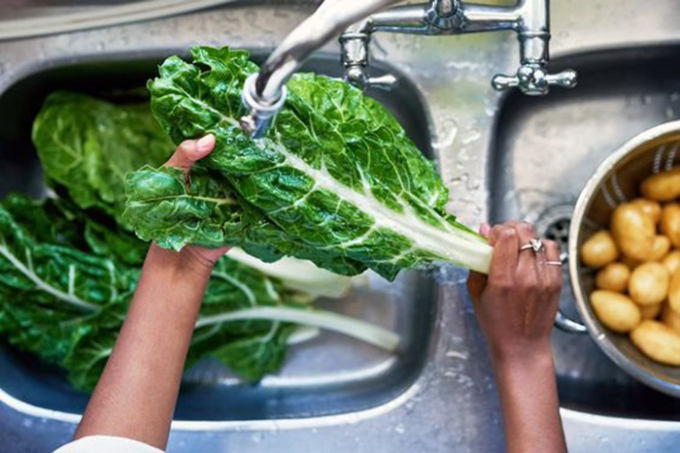 Instead of soaking vegetables in saltwater or regular water for too long, rinse them under running water (Illustration)
Instead of soaking vegetables in saltwater or regular water for too long, rinse them under running water (Illustration)
To use saltwater properly when washing vegetables, we should dilute the saltwater to a concentration of about 5%, especially for raw vegetables. A diluted salt solution will help remove toxins from the vegetables better than concentrated saltwater and should only be soaked for about 3-5 minutes. After that, it is still recommended to rinse them under running water to ensure health.
According to Phụ nữ mới (New Woman)
How to Steam Vegetables Without Water While Keeping Nutritional Quality
Are you looking for an efficient and nutritious way to cook your vegetables? XANH Appliances has the answer with two incredible methods of boiling vegetables without the need for water. Find out how to make the most of your vegetables with XANH Appliances!
























